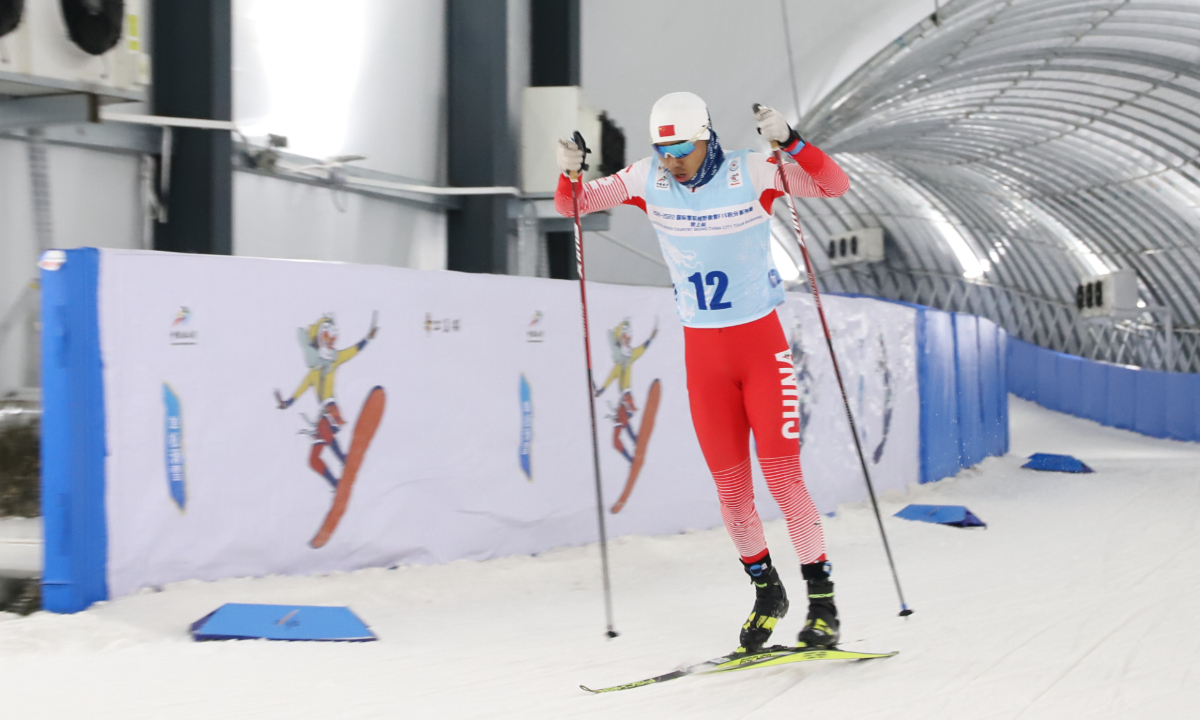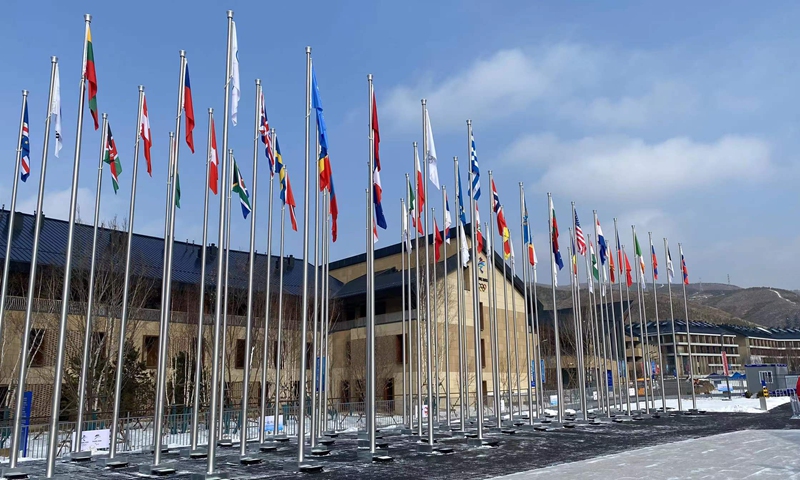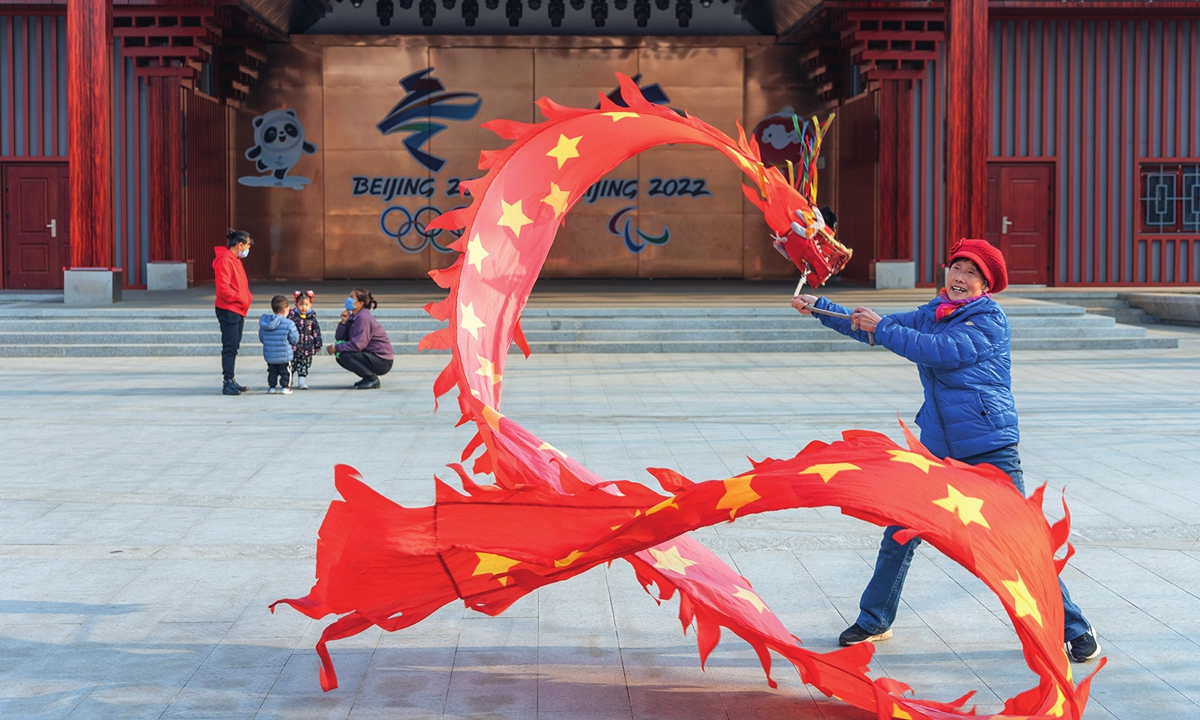Two young skiers from Southwest China’s Xizang Autonomous Region have secured places in the Beijing 2022 Winter Olympic Games this week, making athletics history by having participants from the high plateau to make their debut on the Olympic stage.
Behind the breakthrough is years of combined efforts of China’s strategy to develop winter sports, targeted aid from other regions to Xizang, as well as the regional sports authorities’ work to support and nurture young talent.
Yongzin Lhamo, 17-years-old, on Monday became the first athlete from Xizang to compete in the Winter Olympics. She will compete in the snowboarding event in the Beijing Winter Games.
Hailing from a remote village in Qamdo city, Xizang, Yongzin used to be a soccer player and transitioned to snowboarding in November 2018.

On Tuesday, Tsering Dradul, at only 18 years of age, followed Yongzin in joining the national Winter Olympics Team and will compete in cross-country skiing.
Tesering is from Nagqu prefecture and was a long-distance runner. He was selected to join the skiing and climbing training team of Xizang in December 2017 and soon exhibited great talent.
“The participation of the two athletes in the Winter Olympics is also a historic breakthrough in Xizang’s snow and ice sports,” Chen Honghua,director of the competitive sports department of Xizang sports bureau, told the Global Times.
The skiing team was formed in 2017 based on Xizang’s climbing team, which has a glorious history that focused on adventure, the outdoors, rescue missions, and extreme sports, Tashi Tsering, captain of the Xizang climbing team which administrates the regional winter sport team, told the Global Times.
Now the Xizang skiing and climbing team has 24 athletes ranging in age from 15 to 21 years, Tashi Tsering said, noting that during the establishment and development of the team, many provinces with a winter sports tradition have offered a helping hand, including Jilin, Shaanxi, Hebei, and the Xinjiang Uygur Autonomous Region under China’s overall strategy to develop ice and snow sports.
Aside from that, Xizang skiing and climbing team has also sent excellent athletes abroad for training since 2019. Skiing resorts in Finland, France, and Norway have witnessed the unrelenting efforts of Xizang-grown talent.
“Our athletes are from mountainous regions, who naturally acclimatized to snowy conditions,” Tashi Tsering said. “They have a better ability to withstand cold, low-oxygen environments with stronger lung capacities. Though they are reserved, skiing is a deeply held passion for them.”
Like Yongzin Lhamo and Tsering Dradul, most of Xizang’s athletes are from the rural pastoral area. They were previously students at the sports academy of Xizang and were selected to participate in winter sports due to their outstanding talent, according to Tashi Tsering.
For Xizang’s athletes, the Beijing 2022 Winter Games are just the beginning. The young talents are aiming at the 2024 Winter Youth Olympic Games in Gangwon, South Korea and the 2026 Winter Olympics in Milano-Cortina, Italy, as well as further afield.

Moreover, in July 2021, the International Olympic Committee announced that Ski Mountaineering had been added as a new sport to be featured in the 2026 Winter Olympics. Tashi Tsering believed it will be an advantage for Xizang’s athletes.
“Our goal is to see Xizang’s athletes winning medals in the next Winter Olympic Games, or in the national winter sports games,” Chen said.
At present, Xizang is working on a “seedling nursery plan” and part of China’s “big heart plan” to expand the talent pool for winter sports and the Olympics. More talents are expected to be found and groomed.
In the snow and ice “seedling nursery plan” project, 23 young, talented athletes, mainly from Xigaze prefecture in Xizang, will be sent to Northeast China’s Jilin Province. Meanwhile, 12 youth athletes were sent to Northeast China’s Heilongjiang Province on Tuesday. It is expected to take about eight years of training to see them compete and excel in the professional games, Chen said.
The General Administration of Sport in China is also conducting the “big heart plan” mainly in the high-altitude areas of China, including Xizang, Xinjiang, Qinghai, and Yunnan to foster young, potential athletes.
“We set up a special team in response to the project in October, 2021, and sought talent from schools in all seven regions in Xizang,” Chen said.


Nearly 5,000 students aged 12 to 18 were tested and 150, from Tibetan, Han, Monba ethnic groups, were selected to undergo a two-month training program at a training base in Nyingchi plateau.
“We have sent a team of experienced coaches and a support crew for the young talent, and officials from the national sports administration are expected to visit Xizang for the project,” Chen said.
In the future, top talents are expected to enter the Chinese national teams and Xizang’s regional team.
“From these young talents, we can see that children in Xizang of today are sound in body and mind thanks to economic development and elevation of living conditions,” Tashi Tsering said. “We truly have found many rising stars in this training camp so far.”
Despite maintaining talent, the region is also looking forward to exploring its ice and snow resources to include the public in experiencing winter sports.
Compared with other parts of the country, the development advantage of snow and ice sports in Xizang would be cross-country skiing and other endurance sports based on the local geographical environment.
Xizang does not have a professional ski resort yet, but we often organize ski and climbing activities, Chen said. “We will work hard to develop snow and ice sports projects.”
[h1]Not clear whether you meant runner or long-distance snow sport racer





